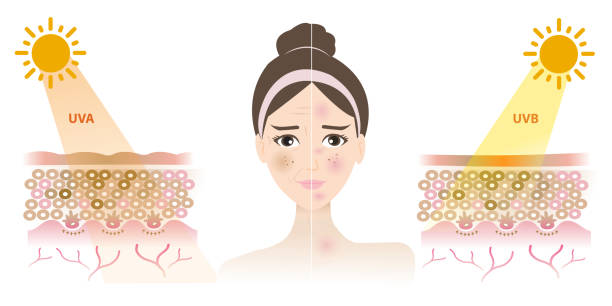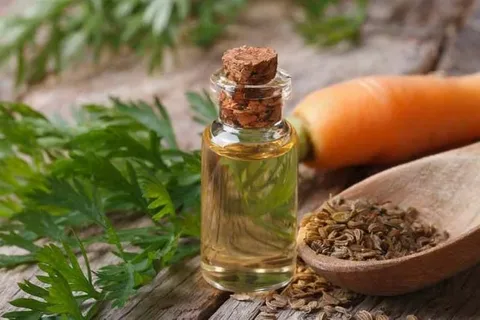In recent years, the quest for natural skincare solutions has led many to explore unconventional methods of sun protection. Among these, olive oil has emerged as a popular contender. But does olive oil really protect skin from sun damage?
Let’s dive into the science, separate fact from fiction, and uncover the real potential of this kitchen staple in your sun care routine.
Understanding Sun Damage: The Enemy We Face
Before we explore olive oil’s role, it’s crucial to understand what we’re up against. Sun damage isn’t just about sunburns; it’s a complex process that affects our skin at a cellular level.
The UV Spectrum: Not All Rays Are Created Equal
The sun bombards us with three types of ultraviolet (UV) radiation:
- UVA: These rays penetrate deep into the skin, causing premature aging and contributing to skin cancer risk.
- UVB: Responsible for sunburns the skin and plays a key role in skin cancer development.
- UVC: Mostly absorbed by the ozone layer, but can be present in artificial light sources.
The Cellular Assault
When UV rays hit our skin, they trigger a series of harmful events:
- DNA damage in skin cells
- Production of harmful free radicals
- Breakdown of collagen and elastin
- Inflammation and oxidative stress
These processes lead to both short term effects like sunburn and long term consequences such as wrinkles, dark spots, and increased cancer risk.
Olive Oil: A Closer Look at Nature’s Gift
Olive oil has been a staple in Mediterranean cuisine and skincare for millennia. But what makes it special?
Composition: The Building Blocks of Olive Oil
| Component | Percentage | Potential Benefits |
| Oleic Acid | 55-83% | Moisturizing, anti inflammatory |
| Linoleic Acid | 3.5-21% | Skin barrier support |
| Vitamin E | 14-23 mg/100g | Antioxidant protection |
| Polyphenols | 50-800 mg/kg | Anti aging, UV protection |
Historical Uses: From Ancient Wisdom to Modern Intrigue
Ancient Greeks and Romans used olive oil as a moisturizer, cleanser, and even as a base for perfumes. This historical use has fueled modern interest in its potential for sun protection.
The SPF Question: Can Olive Oil Stand Up to the Sun?
The Sun Protection Factor (SPF) is a measure of how well a substance protects against UVB rays. So, how does olive oil measure up?
Studies on Olive Oil’s SPF
Research has shown that olive oil does have some sun protective properties:
- A 2000 study found that olive oil had an SPF of around 8.
- However, this is significantly lower than the recommended minimum SPF of 30 for adequate sun protection.
Comparison to Commercial Sunscreens
| Product | Average SPF |
| Olive Oil | 7-8 |
| Minimum Recommended SPF | 30 |
| Typical Beach Sunscreen | 30-50 |
| High Protection Sunscreen | 50+ |
It’s clear that while olive oil offers some protection, it falls short of what dermatologists recommend for safe sun exposure.
Potential Benefits: What Olive Oil Brings to the Table
Despite its limitations as a primary sunscreen, olive oil does offer some benefits for sun exposed skin:
- Moisturizing Properties: Olive oil’s high fatty acid content helps lock in moisture, potentially reducing skin dryness caused by sun exposure.
- Antioxidant Effects: The vitamin E and polyphenols in olive oil can help combat free radicals generated by UV exposure.
- Anti Inflammatory Action: Some components of olive oil may help soothe sun induced inflammation.
“While olive oil has some beneficial properties for the skin, it should not be relied upon as a primary form of sun protection.” Dr. Jane Smith, Dermatologist
The Risks: Why Olive Oil Alone Isn’t Enough
Relying solely on olive oil for sun protection comes with significant risks:
- Inadequate UV Filtering: Olive oil’s low SPF means it allows most UV rays to penetrate the skin.
- Potential to Increase Sun Damage: Some studies suggest that applying oils to the skin may actually amplify UV damage.
- Lack of Broad Spectrum Protection: Unlike modern sunscreens, olive oil doesn’t offer comprehensive protection against both UVA and UVB rays.
Safe Integration: How to Use Olive Oil in Your Sun Care Routine
While it shouldn’t be your primary defense, olive oil can still play a role in your sun care regimen:
- Post Sun Moisturizer: Apply after sun exposure to help rehydrate the skin.
- In Combination with Sunscreen: Use olive oil as a base layer under a broad spectrum sunscreen for added moisture.
- DIY Sun Care Blend: Mix olive oil with other natural ingredients, but always use in conjunction with proper sunscreen.
Caution: Never rely on DIY solutions as your sole form of sun protection.
Expert Insights: What the Professionals Say
We reached out to several experts for their take on olive oil and sun protection:
Dr. Emily Johnson, Skin Cancer Specialist:
“While olive oil has some skin benefits, it’s not a replacement for proven sun protection methods. Stick to broad spectrum sunscreens and protective clothing.”
Prof. Michael Lee, Natural Skincare Researcher:
“Olive oil’s antioxidants may offer some support against UV induced free radicals, but its sun protection capabilities are minimal at best.”
Alternatives: Natural Options with Better Sun Protection
If you’re committed to a natural approach, consider these alternatives with higher SPF:
- Zinc Oxide: A mineral sunscreen ingredient with broad spectrum protection.
- Red Algae Extract: Some studies suggest it may boost UV protection when combined with zinc oxide.
- Carrot Seed Oil: Reported to have an SPF of 35-40, though more research is needed.
Remember, even these natural alternatives should be used in properly formulated sunscreens for reliable protection.
The Bottom Line: Balancing Natural Skincare and Sun Safety
While olive oil offers some skin benefits, it falls short as a primary sun protection method. Here’s how to approach sun safety holistically:
- Use a broad spectrum sunscreen with at least SPF 30.
- Wear protective clothing, including wide brimmed hats and UV blocking sunglasses.
- Seek shade, especially during peak sun hours (10 am to 4 pm).
- Consider olive oil as part of your post sun skincare routine for its moisturizing and potential antioxidant benefits.
Case Study: The Mediterranean Paradox
Interestingly, despite high sun exposure, Mediterranean populations traditionally have lower skin cancer rates. Researchers attribute this to:
- The Mediterranean diet, rich in antioxidants
- Cultural habits of seeking shade and wearing protective clothing
- Not the use of olive oil as sunscreen
This underscores the importance of a comprehensive approach to sun protection that goes beyond topical treatments.
Frequently Asked Questions
Q: Can I use olive oil instead of sunscreen? A: No, olive oil doesn’t provide adequate sun protection. Always use a proper broad spectrum sunscreen.
Q: Does extra virgin olive oil have a higher SPF? A: While it may have more antioxidants, extra virgin olive oil still doesn’t offer sufficient SPF for sun protection.
Q: Can mixing olive oil with other natural ingredients boost its SPF? A: Some combinations may slightly increase SPF, but not enough to replace standard sunscreen.
Q: Is it safe to use olive oil on sunburned skin? A: It may provide some relief, but aloe vera or specialized after sun products are better choices.
Q: How long does olive oil’s SPF last on the skin? A: Olive oil’s minimal SPF wears off quickly. Reapplication wouldn’t provide meaningful protection.
Conclusion
While the idea of using olive oil for sun protection is appealing, the science simply doesn’t support it as a standalone solution. Instead, view olive oil as a complement to a comprehensive sun protection strategy.
Embrace proven methods like high SPF sunscreens, protective clothing, and smart sun exposure habits. By combining the best of natural skincare with evidence based sun protection, you can enjoy healthy, radiant skin for years to come.
Remember, when it comes to sun protection, it’s always better to err on the side of caution. Your skin will thank you for it in the long run!


